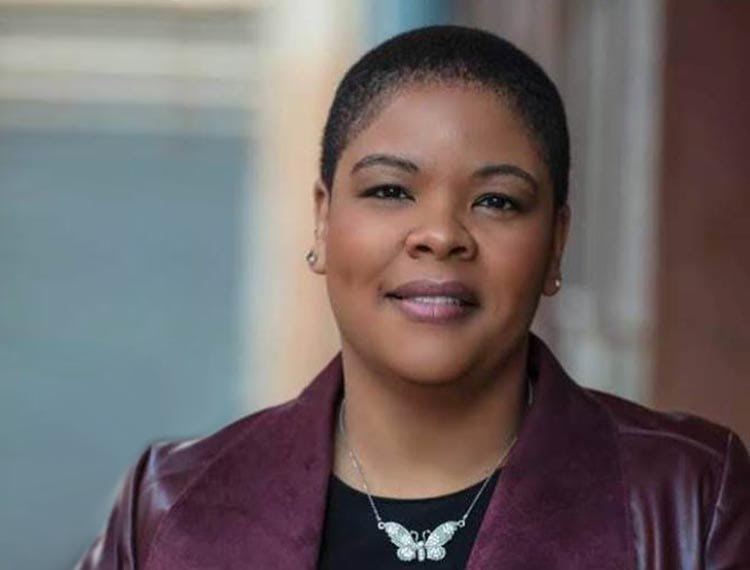Providing a safe-space for effective teaching and learning after trauma

Trauma is healed better collectively – The role of education in ending the #MentalHealth stigma in Black communities
Adverse childhood experiences (ACEs) are known to have harrowing effects on one’s physical and mental health.
In The Deepest Well, Dr. Nadine Burkes explains how her patient stopped growing after he was sexually abused at 4 years old.
According to a recent article by Child Trends, 61% of Black children in the U.S are impacted by ACEs and that number is startling and very unsettling.
To make matters worse, these vulnerable students are required to learn in under-resourced schools that are not trauma-informed.
In other words, the educators aren’t understanding of such trauma, and the schools don’t provide a safe-space for effective teaching and learning.
Given such, here’s a brief overview of information you need to know when serving urban students impacted by ACEs.
The impact that ACEs have on brain development and ability to learn
Imagine being a very young child witnessing your mom being physically and verbally abused daily by your dad. Not knowing who to love, or what side to take when your parents are in such a state.
Then, after years of abuse, your mom decides to leave your dad. However, she’s not employed because she has four young children.
You all move with your maternal grandma to a poverty stricken neighborhood in which you witness people smoking crack, houses being raided by the SWAT team, your peers being physically abused badly by their parents, and countless other traumatic events.
To make things even worse, you’re sitting next to your mom when she gets the call that her new boyfriend, whom she’s now pregnant by, was just murdered by his dad. You witness the change in your mom’s behavior once she gets this news and you notice that she doesn’t take care of you the way she used to.
She slowly starts to drink more often until it gets to the point where all she does is drink and sleep, completely neglecting you and your siblings. Then, one night you’re woken up by your baby sister crying, only to notice that your mom is lying next to you in bed, dead.
Unfortunately, this is a true story. I was 8 years old when I became a motherless child and had endured numerous ACEs by that time.
Urban students living in underserved communities experience trauma rather frequently because of all the underpinnings that living in such neighborhoods present. When trauma occurs multiple times it’s known as complex trauma.
According to the National Centre of Excellence for Complex Trauma it “usually occurs between people, and involves a feeling of hopelessness or being trapped.” For a moment, think about what such repeated trauma does to the brain. The severity of it can be compared to the example I shared about the young boy who was sexually abused.
Thanks to advances in research and technology, more of society is becoming aware of the major impact that trauma has on your mental health. According to The National Child Traumatic Stress Network, “Early childhood trauma has been associated with reduced size of the brain cortex.
This area is responsible for many complex functions including memory, attention, perceptual awareness, thinking, language, and consciousness.” In other words, trauma affects the entire learning process because all of these things are needed to be an effective student.
Ways in which ACEs manifest in the classroom
Although there are numerous ways in which ACEs may manifest itself in the classroom, I will focus on 3 fairly common behaviors:
- Lack of motivation to learn
- Class clown, and
- Aggression
1. Lack of motivation to learn
First, I’ll discuss lack of motivation to learn because I hear quite often, “the students just don’t want to learn.”
A student most certainly can appear to be unmotivated to learn when they are experiencing consistent complex trauma. Like I previously mentioned, poverty brings its own set of unique challenges.
If the student’s most basic needs of safety and survival aren’t being met at home, education is not top priority.
Some of our students are living in shelters, parenting themselves and their siblings, don’t have food to eat and the list goes on.
2. Class clown
A second noteworthy behavior is class clown. Now some of you may be thinking, class clowns are always happy and joking. How could this be a symptom of ACEs? The phrase, “laugh at my pain” explains it all.
I’ve seen this on numerous occasions and one case in particular really resonates with me. One of my former students suddenly lost his dad during the school year. This was particularly traumatic for this student given that his dad was his guardian because his mom abandoned him years ago due to a drug addiction.
A day or so after it happened, the student came to my office and cried hysterically, but by the end of our time together he was laughing and joking as he usually did.
He admitted that he’s always used humor to get through all the trauma that he’d experienced, and explained that it’s better to laugh and joke rather than cry.
3. Aggression
The last behavior I’ll discuss is aggression because it’s often the most challenging to manage in the school setting.
This behavior could be present for a countless number of reasons which could include domestic violence in the home, normalcy of violence in the community, or watching a loved-one get murdered.
Also keep in mind that aggressive behaviors may stem from any form of trauma and is acted out in such a way because the student doesn’t know how to express themselves properly.
Sadly, in the case of urban students, physical violence is all too common. Whether it’s fights or homicides. For instance, at my former high school, three students were murdered in separate instances all in the same school year.
Strategies to better serve urban students
As an educator, being a life-time learner is a very important part of being the best teacher, counselor, psychologist, administrator, etc. that you can be.
We have to constantly remind ourselves that we are impacting students lives, whether it’s positive or negative. I’ll assume you entered education because you love children and don’t want to harm your students.
However, our schools have been doing harm to urban students for years and there’s still huge disparities that exist in funding and the quality of the education. I know there’s many great urban educators that exist because I personally have worked with a good amount of them.
I also know how it feels to want the best for your students but feel overwhelmed with trying to do so because of the many challenges that come along with being an urban educator.
Therefore, I’ll share some strategies that I teach educators to better serve their students.
Be reflective
In order to be the best educator, you have to be reflective. You have to be honest with yourself and dig deep about your most inner thoughts because these thoughts are what guide your teaching.
So, I invite you to think about your biases. Let me explain, because I know some may get offended and be adamant that they don’t have biases. The truth is, we all have biases because we have different human experiences and we simply view the world through those experiences.
So, let’s do a quick reflective exercise in which I’ll ask you a few questions about your biases:
- First, what are three attributes you associate with urban students?
- Second, what are three attributes you associate with suburban students?
- Third, explore your beliefs that made you choose those specific attributes.
By answering these few questions you start to open your mind and explore your own behaviors. Spend some time with your answers and journal about them. Remember, just be open and honest with yourself through this process to get the best results.
Be a life-time learner
Like I mentioned earlier, being a life-time learner is pertinent to being the best in your role as an educator. Learning about the population you serve is required to do your job most effectively because you have to know their likes, dislikes, behaviors and most importantly why.
Once you understand your students, you begin to reach them at a deeper level and this is where you start to build connections and true learning begins. In order to do this, you have to meet your students where they are.
It’s safe to say that many urban students like Hip-Hop so it would be beneficial to tailor some of your lesson plans, etc. with that in mind. Ron Clark is one of my favorite educators because he is the epitome at meeting the students where they are.
I N S P I R E ?// We just completed 3 days of educator training by welcoming over 1K educators into our classrooms! Joining the club of over 60K educators who have participated in the #RCAExperience, these magic makers left w/ tools to change lives!#RonClarkAcademy#RCAInspired pic.twitter.com/rCIwAxajeS
— Ron Clark Academy (@ronclarkacademy) July 20, 2019
To do so effectively, you’ll have to do some research but that’s part of the learning process. Remember, be relatable so the students can form connections between real life and school which is fundamental to effective learning.
Your approach, which ties into what we’ve been discussing throughout, can make or break the learning process for you and the students. If you approach your students with love and respect consistently, you foster a trusting relationship.
I understand that at times, this can be challenging because of some of the behaviors the student may manifest, but it is possible. In difficult moments, stay mindful that the student is demonstrating a symptom of trauma and do not take it personal. During these moments, take deep breaths and remain calm.
I’ve been in my fair share of challenging situations and was able to de-escalate them because I didn’t respond in the same manner as the student. When you do, you create an instant power struggle and we don’t want that.
Research shows that trusting relationships is one area of importance in helping a student heal from trauma. The reason I was able to overcome my ACEs is because I had so many trusting relationships with my teachers, adults, and family members.
Some of the students we serve just need one trusting relationship to positively change the trajectory of their lives.
Nicole Thompson, Ed.S Certified School Psychologist, The Urban School Psychologist
About the author: Nicole Thompson is a certified school psychologist, educator, author, public speaker, and mentor to urban youth. In recognition of her impact in Black communities across Philadelphia and within her field, she received a standing ovation following her presentation at the 2019 Harvard School Mental Health Conference.











Responses